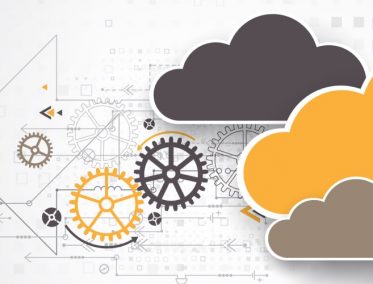Note: IT Convergence provides ERP system guidance and does not offer tax or legal advice. See full disclaimer below.
Brazil’s tax landscape is undergoing a significant transformation with the introduction of the CBS (Contribuição sobre Bens e Serviços) and IBS (Imposto sobre Bens e Serviços) taxes. These changes, part of the broader Brazil New Tax reform, aim to simplify the country’s complex tax system and enhance compliance mechanisms. However, they also bring substantial implications for financial reporting and compliance processes within organizations operating in Brazil.
Understanding the Brazil New Tax Reform
The Brazil New Tax reform, formalized through Constitutional Amendment No. 132/2023 and Complementary Law No. 214/2025, introduces two primary taxes:
- CBS (Contribuição sobre Bens e Serviços): A federal-level tax replacing PIS and Cofins.
- IBS (Imposto sobre Bens e Serviços): A state and municipal-level tax replacing ICMS and ISS.
Additionally, a Selective Tax (IS) is introduced to target specific goods and services considered harmful to health or the environment.
These taxes are designed to be non-cumulative, ensuring that tax is only paid on the value added at each stage of the supply chain. This approach aligns with international best practices and aims to reduce the cascading effect of taxes.
Timeline and Transition Period
The implementation of the Brazil New Tax reform is structured over a transition period to allow businesses to adapt:
- 2026: Pilot phase begins with reduced rates for CBS and IBS.
- 2027: Full enforcement of CBS; PIS and Cofins are abolished.
- 2029–2032: Gradual transition of ICMS and ISS into IBS.
- 2033: Complete rollout with full implementation of CBS and IBS; ICMS and ISS are fully abolished.
This phased approach provides businesses with time to adjust their financial reporting and compliance systems accordingly.
Impact on Financial Reporting
As the Brazil new tax reform moves from legislative intent to operational reality, its impact on financial reporting and compliance is impossible to ignore. CBS and IBS are set to replace existing indirect taxes with a more standardized dual VAT system—but this seemingly simplified model will require organizations to rethink how they structure transactions, report tax obligations, and manage financial accuracy.
1. Changes in Tax Calculation and Reporting
The shift to CBS and IBS as part of Brazil new tax reform requires significant adjustments in how taxes are calculated and reported:
- Tax Determination: ERP and tax engines must be reconfigured to calculate taxes not based on origin but on the destination of goods and services. This requires geographic logic, new tax codes, and rule-based configurations that accurately reflect the applicability of CBS/IBS.
- Invoice Structuring: Invoices will need to itemize CBS and IBS distinctly, comply with the national e-invoicing (NFe/NFS-e) standards, and embed split payment logic for automatic remittance to tax authorities. Ensuring invoice accuracy is not just good practice—it’s a legal obligation under the Brazil new tax reform.
- Reporting Obligations: The reform will reshape how and when businesses report taxes. Compliance with SPED (Public Digital Bookkeeping System) will require enhanced detail, including real-time validations and tighter reconciliation between fiscal and financial data. Systems must align with updated digital layouts and reporting schemas defined under PLP 68/2024.
2. Dual Tax Regime Management
Between 2026 and 2033, companies will operate under both the legacy tax system and the new CBS/IBS regime. This transitional phase poses unique financial reporting challenges:
- Parallel Reporting: Businesses will need to generate tax reports under both regimes concurrently. This requires a sophisticated ERP setup capable of differentiating transactions by date, tax event, or legal entity.
- System Flexibility: Managing two tax structures simultaneously will test the scalability of current financial systems. ERP platforms must support dual configurations and toggling logic that allow seamless switching between old and new rules according to the rollout schedule of Brazil’s new tax reform.
3. Financial Statement Adjustments
The new tax structure impacts financial statements:
- Revenue Recognition: CBS and IBS may alter the timing and amount of recognized revenue, particularly for cross-border transactions or services delivered over time. Companies must ensure their revenue recognition policies reflect these nuances.
- Tax Liabilities: Updated tax rates and non-cumulative mechanisms mean businesses must reassess short-term and long-term liabilities. Incorrect or outdated tax setups could lead to underreporting, overpayment, or audit-triggering discrepancies.
- Deferred Taxes: Adjustments to deferred tax assets and liabilities may be necessary, especially as credits under the old regime phase out and new rules for CBS/IBS input credits take effect.
Compliance Challenges
Compliance under the new model is not simply a matter of tax team awareness. It cuts across systems, processes, data governance, and employee preparedness.
1. System and Process Overhauls
Implementing the new tax rules necessitates comprehensive system and process changes:
- ERP System Updates: Organizations must upgrade ERP modules to manage CBS/IBS rules, incorporate destination-based taxation, and accommodate split payments linked to settlement. Failing to update core financial systems could lead to errors in tax calculation, SPED reporting, and invoice generation.
- Process Redesign: Procurement, billing, and accounting workflows must be re-engineered to reflect real-time validations, fiscal data accuracy, and multi-CNPJ logic. This requires careful mapping of every process that triggers a tax event.
2. Training and Change Management
Employees across various departments require training to understand and implement the new tax rules:
- Education Programs: Employees in finance, tax, IT, procurement, and accounts payable/receivable must be educated on the mechanics and implications of the Brazil tax reform. This includes understanding split payments, credit recovery rules, and tax logic changes.
- Change Management: Resistance to new processes is a risk. Businesses must implement structured change management initiatives, including phased training, internal documentation, and stakeholder communication plans to ensure a smooth transition.
3. Risk of Non-Compliance
Failure to comply with the new tax regulations can result in significant penalties:
- Fines and Penalties: Tax authorities will impose penalties for late submissions, incorrect filings, and invoice errors, particularly where real-time validations or split payment remittances fail.
- Reputational Damage: Non-compliance doesn’t just hurt the balance sheet; it can undermine credibility with partners, suppliers, and regulators.
- Operational Disruptions: A rejected NFe due to faulty tax logic can delay shipments, trigger rework, and stall cash flow. If systems aren’t aligned with reform requirements, these disruptions will become recurring threats.
Strategies for Compliance and Adaptation
1. Early Planning and Assessment: Proactive planning is crucial:
- Impact Analysis: Evaluate how every department, from supply chain to finance, is affected. Map tax touchpoints and identify legacy system gaps.
- Resource Allocation: Set aside budget for technology upgrades, consulting support, and training programs. Don’t wait until Q1 2026 to start investing.
2. Technology Investments: Investing in technology is essential for compliance:
- ERP Enhancements: Upgrade to supported versions of Oracle EBS or Oracle Cloud, which will receive CBS/IBS patches and localization support. Legacy systems will not be eligible for critical updates.
- Automation Tools: Automate reconciliations between fiscal and financial records, tax credit validations, and SPED report generation to reduce manual effort and increase compliance reliability.
- Integration with Tax Platforms: Ensure your ERP can integrate with platforms like Synchro, MasterSAF, and Receita Federal’s APIs. Seamless, real-time data exchange will become mandatory.
3. Collaboration with Experts: Engaging with tax and legal experts can provide valuable insights:
- Tax and Legal Consultants: Work with professionals who understand the legislative and operational implications of CBS/IBS to avoid misinterpretations and misconfigurations.
- Localization Specialists: Collaborate with ERP and tax engine vendors that specialize in Brazilian compliance, ensuring your configurations meet local requirements and future updates.
- Training Partners: Enlist partners who can conduct system walkthroughs, create training simulations, and help internal teams understand both the technical and operational changes required.
Rundown!
The Brazil New Tax reform represents a significant shift in the country’s fiscal landscape, aiming to simplify taxation and improve economic efficiency. However, the transition poses challenges for businesses, particularly in financial reporting and compliance. By proactively planning, investing in technology, and engaging with experts, companies can navigate the complexities of the reform and position themselves for success in the new tax environment.
For a more in-depth analysis of the risks associated with ERP system readiness in light of Brazil’s 2026 tax rollout, consider reading our comprehensive eBook:
Disclaimer:
The information presented in this blog is for educational and informational purposes only. IT Convergence is a technology and ERP systems advisory firm. While we closely monitor Brazil’s tax reform (CBS/IBS) and help organizations prepare their Oracle environments accordingly, we do not provide tax or legal advice, nor do we interpret tax legislation.
This content reflects our understanding of system-level impacts based on publicly available resources and collaboration with Oracle and trusted tax partners.
We recommend all organizations consult with qualified tax or legal advisors to assess their specific obligations under CBS/IBS based on industry, entity classification, and jurisdiction.
IT Convergence supports Oracle ERP customers in configuring, optimizing, and future-proofing their systems for compliance, but does not assume responsibility for legal or fiscal determinations.




